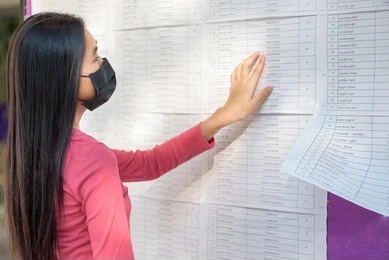Secondary School Certificate (Matric) results have been announced and the students are along with their result marksheets, some are happy due to their excellent marks while others are in a depressed condition due to their bad performance, Citizens Survey revealed.

Some students were treated with a cold shoulder parents’ attitude and are becoming embarrassed in their friend groups. It is a dilemma and pathetic response from parents’ side that students are criticized and mentally tortured to such an extent that they commit suicide, eat high doze sleeping pills and become part of news headlines and become story of private TV channels and social media.
The time when students do not get good marks, parents can adopt a supportive and constructive approach to help their children improve and adopt positive role with the situation. Although parents are physically and mentally disturbed after hearing passing news of neighbours children they should throw water on their hot heads and minds Parents should adopt counselling strategies, acquire positive behaviors and should be more supportive to regain their lost confidence.

Some strategies parents can consider necessary for them to remain calm and positive. Reacting with anger or disappointment can negatively shake the child’s self-respect and motivations. Parents should show the positive side of life offer reassurance and emphasize that it’s okay to make mistakes and face setbacks. Examples of European, Asian and African heroes should be quoted along with Mughal emperors and other dynasties who failed consistently and at the end achieved success.
Encourage open dialogue with children and ask them about their challenges and listen without judgment. Only through understanding their perspective can provide insights into their struggles and help in finding effective solutions through examples in an extreme serious mood allowing them to make extensive dialogue sessions to help improve their educational capabilities.

Parents should deeply study the mark sheets and mark the demerits Work with your child to identify the reasons behind the low marks. It could be due to various factors such as difficulty understanding the subject, lack of study habits, personal issues, or even health problems. Addressing the root cause is crucial for improvement.
Realistic and positive approach can only help your child set achievable and realistic academic goals. Breaking down larger tasks into smaller, manageable steps can make the process less overwhelming and more achievable.
Parents should create and establish a consistent study routine through detailed research about shortcomings that includes breaks and leisure activities. Thoroughly researched and applicable structured schedule can help students manage their time effectively and reduce their shortcomings converting their carelessness into responsible attitude
Ensure your child has access to the necessary study materials, such as textbooks, online resources, or tutoring if needed. Sometimes, additional support from a teacher or tutor can make a significant difference. Meanwhile parents should promote good study habits such as taking notes, reviewing material regularly, and practicing past papers.
Parents should teach them effective study techniques like summarizing information, creating mind maps, or using flashcards. Encourage a balanced lifestyle that includes adequate sleep, healthy nutrition, and physical activity.
Healthy body and mind are essential for academic success Acknowledging and praising your children’s efforts and improvements, regardless of the outcome. Positive reinforcement can boost their confidence and motivate them to keep trying, struggling, improving and making a better approach towards life and success.
Parents should adopt a caring and smiling face attitude by putting shortcomings aside if children continue to struggle despite commendable efforts, they should consider seeking help from a school counselor, psychologist, or educational consultant. Professional guidance can provide better strategies to address specific challenges, improve positive approaches and capabilities






